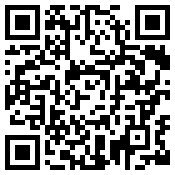When the cat reaches the fishbowl, then
pause the video and ask your
Students/Participants (S/P) to figure out what happens next. Most likely you will get S/P's attention, and stimulate their minds to think creatively about what happens next in a competitive but enjoyable way. If you break S/P up into groups, and then give each group say 2 minutes to come up with their answer, you will get collaborative fun.
WARM UP S/P FIRST, OR THEY WILL ________!
Using
short videos found on the Internet as icebreakers to stimulate thinking and help people to get familiar with each other in new situations and environments is today easier than ever, because of the millions (I mean billions!) of videos freely available on sites like
YouTube.
More importantly, before you engage your S/P to learn and interact with the subject matter in a face-to-face session (or online session), it is
important to warm them up first, or awaken them from their sleep (or whatever they are doing/thinking). It is obvious in sports that we need to warm our relevant muscles before playing a particular activity; otherwise the likelihood of getting injuries increases significantly. Though, strangely enough not all lecturers/educators/facilitators apply this common sense idea to learning. Let's not forget that our Brain is also a muscle that needs to warm up too, or it would probably fall asleep (not literally!), or be in another dimension beyond the subject paradigm.
AWARENESS TEST
Remember to pause after the first scene when the passes have been made, and then ask 'How many passes does the team in white make?' Most S/P will probably answer correctly, and then you ask 'Did you see the Moonwalking bear?' And unless they have already seen this video (12+ million have already on YouTube alone!), they would have ignored that particular incident. Although, this is labelled as an awareness test, it is also a great short video to warm up students' minds before getting them busy with the subject matter.
IMPORTANCE OF LANGUAGE SKILLS
This one is a classic, which I commonly use to emphasize the importance, relationship, and connection of language with understanding and thinking. Instead of being really serious about it, and making people uncomfortable when talking about such matters, you could use videos such as the one above to make a point (that probably sticks better, too).
I have watched this scene (above) from 'The Pink Panther 2' a bazillion times, but I still laugh every time I watch it. I have used this video in several workshops to
indirectly encourage S/P to work on their English accents as that might hamper their communication with others (e.g. lectures and discussions), and that new accents can be learned (although it could take time).
These are just four examples of using short videos (less than 5 minutes) found on the Internet to stimulate S/P to think, and break down communication barriers. The best part is that there are thousands, if not millions of freely available videos ready to be plucked from video sharing sites.
If you have any experiences, or discovered some mind stimulating short videos to share, please share it in the comments section (That would be great!).HOW TO DOWNLOAD VIDEOS FROM YOUTUBE? I knew that question was coming (obviously!), and here is the answer (link below):
What about downloading and copyright? I discuss this issue a bit here.
Don't worry, be happy, and take calculated risks using short videos to stimulate thinking and breaking down communication barriers (though, please consider sensitivities to religion, culture and race).
It is amazing how fun a learning session can become by taking a few risks in the way we facilitate learning :)






